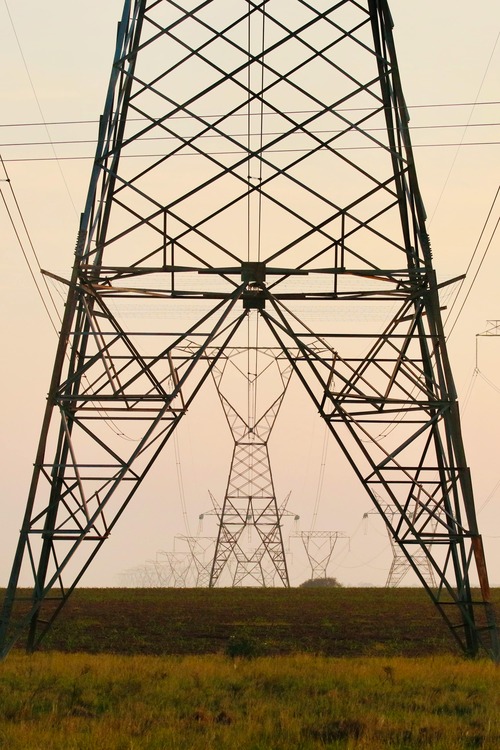
Does Closing Vents in Unused Rooms Help Save Energy?
Find out why closing air vents might not be the energy-saving solution you thought.
Does closing air vents help reduce your electric bill? No. Closing HVAC vents does not help you save money or reduce your electricity usage.
Closing air vents in your home can seem like an easy way to reduce heating and cooling costs, but it can actually cause a number of problems. Your home's HVAC system is one of the most costly appliances to repair.
The last thing you want to do is cause damage in a failed attempt to save a few bucks. Understanding the potential risks and exploring alternative energy-saving options can help you take actions that benefit your home and wallet.
Problems Caused by Closing Air Vents
Imbalanced airflow
Closing air vents in certain rooms can create an imbalance in your home's airflow. This can lead to rooms that are too hot or too cold, which can make them uncomfortable to use. Additionally, imbalanced airflow can lead to increased energy costs as your heating and cooling system works harder to maintain a consistent temperature.
Reduced efficiency
Closing vents can reduce the efficiency of your HVAC system. This is because the system is designed to circulate air evenly throughout your home, and closing vents can disrupt that flow. As a result, your system will have to work harder to maintain a consistent temperature, which can lead to increased energy costs.
HVAC system damage
Closing vents can also cause damage to your heating and cooling system. This is because the system is designed to circulate air at a certain rate and air pressure. Closing vents can cause the system to work harder than it was designed to. Over time, this can lead to increased wear and tear on the system, which can result in costly repairs.
Poor indoor air quality
Closing air vents can also lead to poor indoor air quality. This is because most heating and cooling systems are designed to circulate fresh air.
Closing vents can reduce the amount of fresh air that your HVAC system circulates. This can increase your home’s levels of indoor air pollution, which can be harmful to your health.
Mold growth
When cold air meets warm air, it leads to condensation, which fosters mold growth. During summer, for instance, if there are gaps in your ductwork, the hot and humid air from the attic can mix with the cool air from the air conditioner, resulting in condensation and mold formation.
Alternatives to Closing Vents in Unused Rooms
If you're looking for ways to save energy and money without sacrificing comfort in your home, there are alternatives to closing air vents in unused rooms.
Use zone control systems
Zone control systems allow you to customize the temperature of different areas of your home by dividing it into “zones” and controlling each area separately with its own thermostat. This way, you can keep certain parts of your house cooler or warmer than others depending on where people spend most of their time.
Use a smart thermostat
Utilizing smart thermostats and sensors is another great alternative to closing vents in seldom used rooms. Smart thermostats allow you to program temperatures based on the time of day, so they automatically adjust when no one is home or when everyone has gone to bed. Sensors detect motion within a room and will turn off the air conditioning if no one is present, saving energy while still keeping occupants comfortable when they return.
Seal air leaks
Sealing air leaks around doors and windows can also be an effective way to save energy. Air leaks occur due to gaps between door frames or window sills that let outside air seep into your home. These small openings add up over time and cause higher utility bills and uncomfortable drafts throughout the house.
Sealing air leaks with caulk or weatherstripping helps prevent warm air from escaping during the wintertime while also blocking out hot summer breezes — all without having to close off the ventilation system.
Use space heaters or fans
Rather than heating or cooling your entire home, use an electric space heater or fan to keep smaller spaces comfortable. In most cases using a space heater or fan will use much less energy than running an entire HVAC unit. Just make sure you aren’t running too many at once.
EnergyBot's Take
Instead of closing vents, consider other ways to reduce energy costs, such as sealing air leaks, installing a programmable thermostat, or investing in energy-efficient appliances. By taking these steps, you can reduce your energy costs while maintaining a comfortable home.
Written by Thad Warren
Thad is a native Texan who has worked in the energy industry for just over 5 years.
Connect
Recent Posts
Why is my Power Bill so High? Simple Solutions for Savings
In this article, we’ll break down some of the common reasons why your electric bill is so high and how to save money while reducing your energy usage.
June 2025

4 minutes

Ebie: Your AI Energy Advisor
We want to empower our customers with cutting edge insights to help you navigate the energy shopping process easier. Instead of sifting through plans, get personalized answers in minutes with our new AI energy advisor: Ebie.
June 2025

3 minutes

Pittsburgh Energy Prices Spike: Duquesne Light Company Announces New Rates
The utility company’s rate increase went into effect on June 1, 2025 raising the price for energy by over 15%. Many Duquesne Light Company customers can avoid the significant increase by shopping for an alternative supplier.
June 2025

5 minutes


.jpeg)
